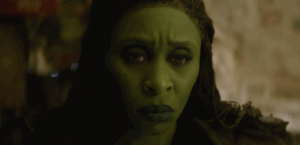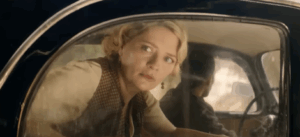Blumhouse and director James Watkins have turned what was once a searing, gut-punch of a psychological thriller into a lifeless shell of its former self. This American remake of Speak No Evil should be buried and forgotten, for it tarnishes the raw brilliance of the original Danish film in ways both frustrating and inexplicable. If there were any lingering doubts about the studio’s ability to butcher a promising premise, Speak No Evil stands as their latest, unapologetic testament to mediocrity. It is a film that insults the very notion of horror, replacing the original’s visceral terror with a sanitized, vacuous husk that ultimately wraps itself in a ridiculous, feel-good ending. A travesty, really; a waste of both Speak No Evil’s brilliant predecessor and the talents of James McAvoy, who here is reduced to a glorified caricature.
The original Speak No Evil, directed by the visionary and disturbingly adept Danish filmmaker Christian Tafdrup, was a brutal examination of social norms, boundaries, and the creeping discomfort of polite society. With its slow-burn tension, it built a dread so potent that when the violence did finally erupt, it felt like a necessary, terrifying release. The horror wasn’t in the spectacle; it was in the subtle accumulation of moments; awkward dinner conversations, offhand comments, those seemingly innocuous breaches of etiquette; that slowly morphed into a suffocating, unbearable atmosphere. That film’s raw, unapologetic violence left an indelible mark, forcing the viewer to sit with the implications long after the credits rolled.
This remake, however, is a hollowed-out shell of that experience. Watkins has taken a story that should have been a meditation on the dissonance between civility and cruelty and turned it into a banal home-invasion flick, devoid of nuance and desperately trying to court a broader audience. Gone is the tension that clung to every frame of the original; here, every attempt at suspense feels forced, predictable, and, above all, tame. The visceral horror that made the Danish film such an unsettling experience is nowhere to be found. What was once an unflinching look at moral decay is reduced to a series of cheap shock moments that never land.
James McAvoy, who is typically a magnet for intense, layered performances, finds himself playing a character that is all surface and no substance. His portrayal of the husband, an outwardly charismatic figure who hides something far darker beneath, lacks the depth and menace that the role requires. In the original film, the villainy of the couple was insidious precisely because it was disguised under a veneer of politeness, their malice conveyed through subtle actions, looks, and small, creeping gestures. McAvoy’s character, in contrast, is too overt, too coked-up in his manic energy, offering none of the quiet but persistent threat that made the original so terrifying. While there’s a sense that McAvoy is itching to unleash his character’s darker side, he’s never truly allowed to go beyond the surface; a frustrating waste of his considerable talents.
What’s most egregious, however, is the remake’s final act. Whereas the original’s brutal, unforgiving ending left audiences breathless with the kind of emotional and psychological carnage that sticks with you for days, this version turns into something indistinguishable from a family-friendly holiday film. The transformation of what was once a devastating exploration of human depravity into a farcical, contrived climax is both perplexing and enraging. The original’s ending was as cold and unapologetic as the violence that preceded it. This, however, is as unchallenging as a Disney movie, and therein lies its greatest offense. By abandoning the darkness and brutality of the source material, Blumhouse and Watkins have stripped the film of its core, replacing it with a saccharine twist that insults both the audience and the integrity of the original.
For those who have seen the Danish version, this remake will feel like an affront; a pale imitation, a neutered version of a work that demanded to be taken seriously. For newcomers to the story, Speak No Evil will be nothing more than a forgettable and ultimately forgettable thriller that fails to capitalize on the potential of its premise. The original film’s combination of humor, dread, and sudden, shocking violence remains unmatched, and it’s a shame that Blumhouse, a studio capable of genuine horror, chose to squander this opportunity.
In the end, Speak No Evil is a shameful exercise in creative cowardice. It’s a film that has been stripped of the edge and substance that made its predecessor a modern horror landmark. Skip this remake, and do yourself a favor, seek out the original. It’s the only version that truly deserves your time.









